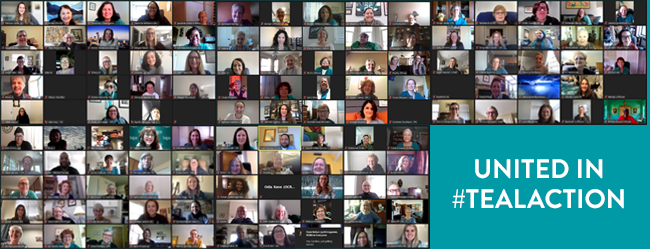
OCRA’s Spring Advocacy Day, held March 8-9, looked a little bit different this year. For starters, we met online rather than in Washington D.C. But while the natural and obvious reaction to virtual life is to focus on what we’ve lost, we’re choosing to focus on all that we’ve gained from having to move our biggest advocacy day of the year to an online platform.
Two hundred people attended, more than double the usual turnout. We had representation from 43 states and 157 unique congressional districts. Of those 200 attendees, 130 of them joined our efforts for the first time. Even more, people with disabilities who have not been able to attend in the past could join in the training sessions and meet with their elected officials. And we were able to accommodate meetings with quick turnaround times since folks weren’t traipsing through the halls of the Capitol, trying to find offices on different floors and hallways.
During the training sessions, participants gained an understanding of the current landscape in Congress and the Administration, as well as the current need for critical funding increases to ovarian cancer programs. They got background on the important role of the federal government in funding ovarian cancer research and education. And they learned how to use their voices in order to be effective advocates. After all, constituents play a critical role in policymaking.
Over the course of the week, OCRA advocates held 243 meetings with elected officials, sharing their personal stories and commonly known facts about the disease as they asked for increased funding to key programs such as the Ovarian Cancer Control Initiative (OCCI) and Johanna’s Law, housed within the CDC, and the Ovarian Cancer Research Program (OCRP), which is funded under Department of Defense appropriations. They also asked for members of Congress to join the Congressional Ovarian Cancer Caucus.
The impact of those few days “together” is still being documented, but some highlights of this year’s Spring Advocacy Day are that we secured 41 Member-level meetings and learned about many personal connections to the disease among staffers and Members. And we expect to set a record turnout this year for signers on our Dear Colleague letters, which are tools that legislators use to demonstrate support for particular programs or initiatives.
We are grateful to everyone who joined us in being an important and influential voice for the ovarian cancer community.
Learn more about what we fight for and how you can get involved >>


